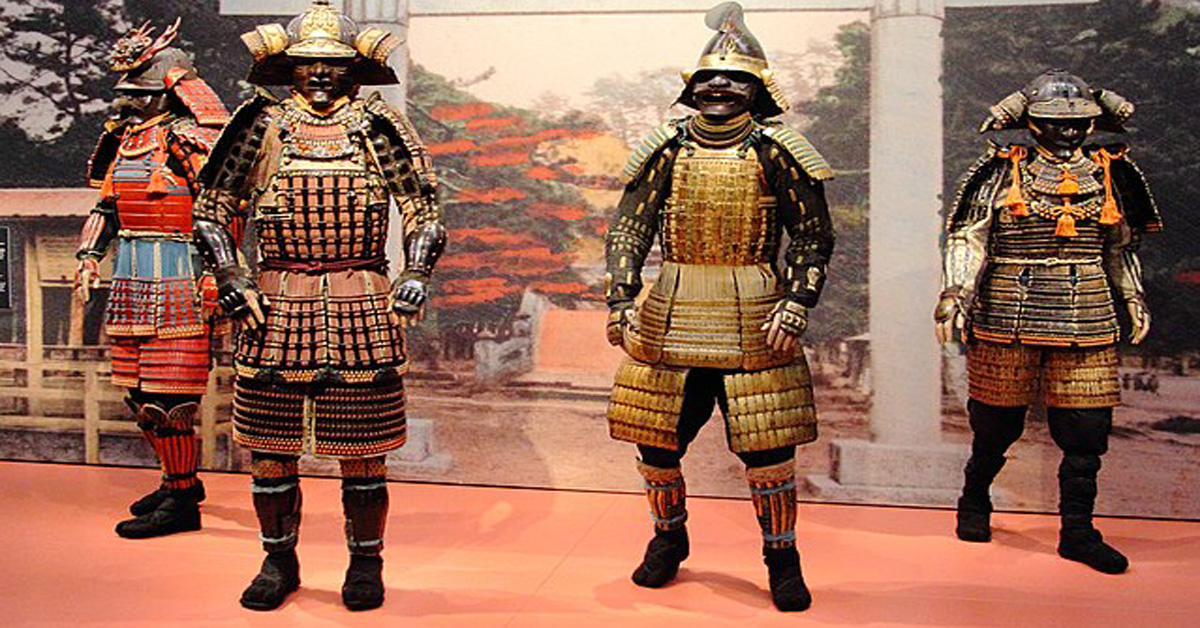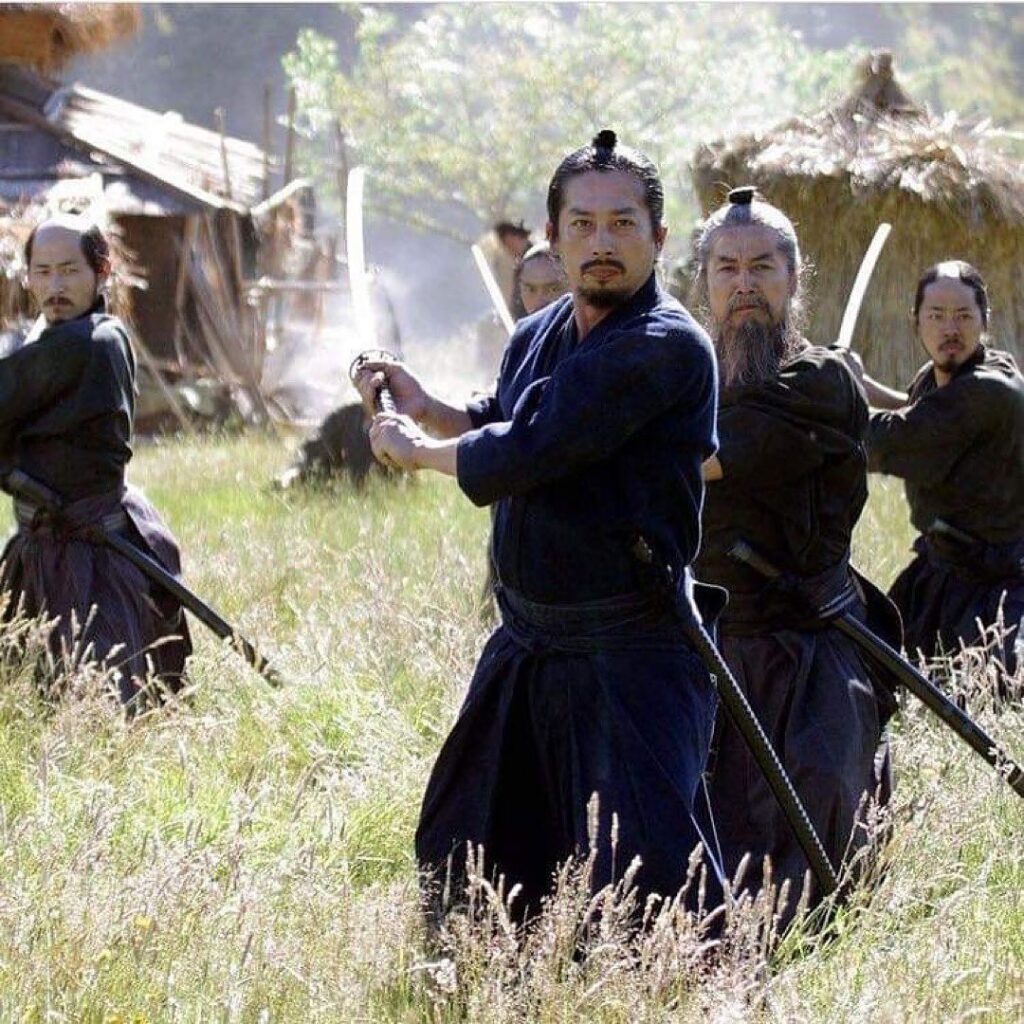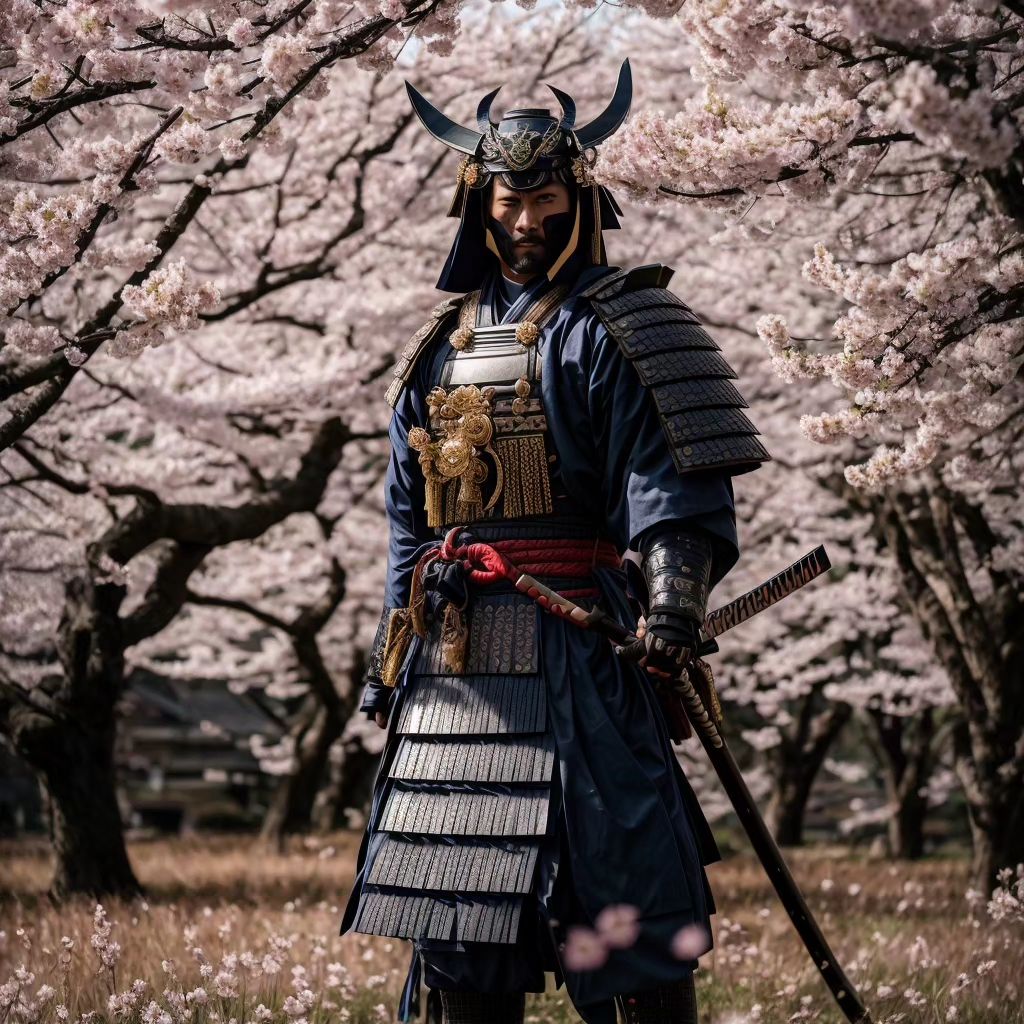The Bushido Code: Moral of the Samurai

Many martial artists follow a warrior’s code known as the Bushido code. It’s a phrase often associated with fighting spirit, and its definition has evolved.
Here’s what you need to know about the bushido code and its history. Read below to learn a little about the history of bushido and how it’s associated with martial arts and warriors.
Contents
What is the Bushido Code
The bushido code means “the way of the warrior.” This samurai’s moral code covers everything from their attitude, behavior, and lifestyle.
It is a compound word that consists of “bushi (warrior)” and “do (way).”
Throughout the history of bushido, the meaning changed within each era in Japan. Today, modern forms of the bushido code are still followed in Japan and worldwide.
The interpretations may be different, but the message is basically the same. Conduct yourself like a warrior and put others before yourself.

Types of Bushido Code
Throughout the history of Japan, the bushido code changed throughout the different time periods. Here are the most documented bushido codes of the different Japanese eras.
- Sengoku Bushido
- Edo Bushido
- Meiji Bushido
- Contemporary Bushido
The Sengoku Bushido (1336-1603)
The Sengoku period was a time when Japan was in constant warfare. Feudal lords expanded their power, and many of them constructed a code for their soldiers to live by.
The most important figures of the time took elements of Confuciousim and Zen Buddhism to create their codes.
Tenets that warriors of the era were the following.
- Honor
- Warfare
- Weapon Mastery
- Martial Arts
- Bravery in Battle
- Early Moral Codes
The Edo Bushido (1603-1868)
The Edo era followed the chaotic Sengoku era. This era was notable for being the longest peacetime in history. Samurai codes no longer had any value due to the lack of war.
Due to this time of peace, the bushido code would be altered. Warrior had more spare time with their thoughts and pursued spiritual enlightenment. Bushido expanded to every part of Japanese culture.
Saito Chikamori defined the essence of Bushido during the Edo period.
- Sincerity
- Responsibility
- Frugality
- Politeness
- Modesty
- Loyalty
- Harmony
- Tranquility
- Compassion
The Meiji Bushido (1868 to 1945)
The Meiji form of bushido was completely the opposite of the code used during the Edo period. During the Meiji period, Japanese society was subservient to the Emperor.
This code emphasized the importance of the group above oneself. Loyalty and self-sacrifice were valued above all else.
The Bushido code during this era was internationally popularized thanks to Nitobe Inazo’s book, The Soul of Japan.
Inazo would go on to write the eight tenets of the Bushido code, which is detailed in the section below.
Contemporary Bushido (1950 to Present)
Contemporary bushido or modern bushido is the type of bushido code followed today. Elements of this code can be seen in the roots of different parts of Japanese culture.
Everything from businesses, schools, sports, and families possess what is often called “the bushido spirit.
The Bushido Code: The Eight Virtues of Bushido
Historically, there is no unified bushido code as the different clans had their own codes. Nitobe Inazo wrote the so-called bushido code, while he was in the US in 1900.
Inazo defined his bushido code as “the ways which fighting nobles should observe in their daily lives as in their vocation.”
He wrote down what people perceive as the eight virtues of the bushido code.
- Righteousness
- Heroic Courage
- Benevolence, Compassion
- Respect
- Honesty
- Honor
- Duty & Loyalty
- Self Control
Righteousness (Gi)
“Be acutely honest throughout your dealings with all people. Believe in justice, not from other people, but from yourself.
To the true warrior, all points of view regarding honesty, justice, and integrity are deeply considered. Warriors make a total commitment to their decisions.”
Heroic Courage (Yū)
“Hiding like a turtle in a shell is not living at all. A true warrior must have heroic courage. It is absolutely risky.
It is living life completely, fully, and wonderfully. Heroic courage is not blind. It is intelligent and strong.”
Benevolence, Compassion (Jin)
“Through intense training and hard work the true warrior becomes quick and strong. They are not as most people. They develop a power that must be used for good. They have compassion.
They help their fellow men at every opportunity. If an opportunity does not arise, they go out of their way to find one.”
Respect (Rei)
“True warriors have no reason to be cruel. They do not need to prove their strength. Warriors are not only respected for their strength in battle but also by their dealings with others. The true strength of a warrior becomes apparent during difficult times.”
Honesty (Makoto)
“When warriors say they will perform an action, it is as good as done. Nothing will stop them from completing what they say they will do. They do not have to ‘give their word’. They do not have to ‘promise’. Speaking and doing are the same action.”
Honor (Meiyo)
“Warriors have only one judge of honor and character, and this is themselves. Decisions they make and how these decisions are carried out are a reflection of who they truly are. You cannot hide from yourself.”
Duty & Loyalty (Chūgi)
“Warriors are responsible for everything that they have done and everything that they have said and all of the consequences that follow. They are immensely loyal to all of those in their care. To everyone that they are responsible for, they remain fiercely true.”
Self Control (Jisei)
A warrior always controls their emotions and never make an emotional decision. They never let an enemy see their true feeling.
The Bushido Code
If you practice any martial art, the bushido code is often associated with it. Anyone who practices martial arts like Muay Thai or BJJ feels spiritual when they train.
Martial artists are often associated with warriors for their dedication to training and pursuing perfection. The training connects your heart, mind, and soul, which gives you the freedom of peace.

Criticisms of the Bushido Code
While the Bushido code seemed to create the foundation of Japan, the code has many critics. Many Japanese psychologists and sociologists believe bushido is the root of many societal and economic problems.
Their main critique is that bushido promotes groupism over individualism. They believe when you have groupism; it creates fear of individuals going against the group in fear of being shunned.
This creates psychological control over people within the group to always stay in line. If individualism isn’t allowed, the advancement of the group will stagnate and begin cracking.
The Bushido Code Today
Contemporary Bushido is still widely used by Japanese social and economic organizations. Everyone has different definitions of Bushido, but the main themes are the same.
The point of the bushido code is to do your best, be respectful, and put others before yourself—an essential reminder to be a good person and treat others well.






